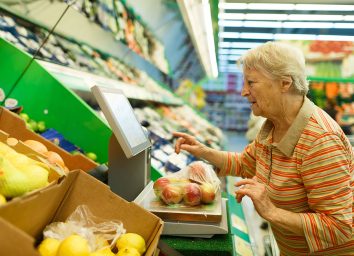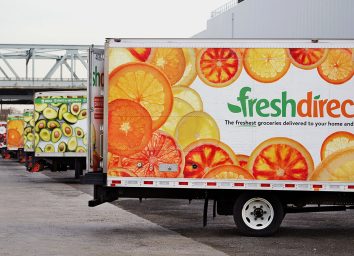7 Precautions You Must Take Before Going Grocery Shopping
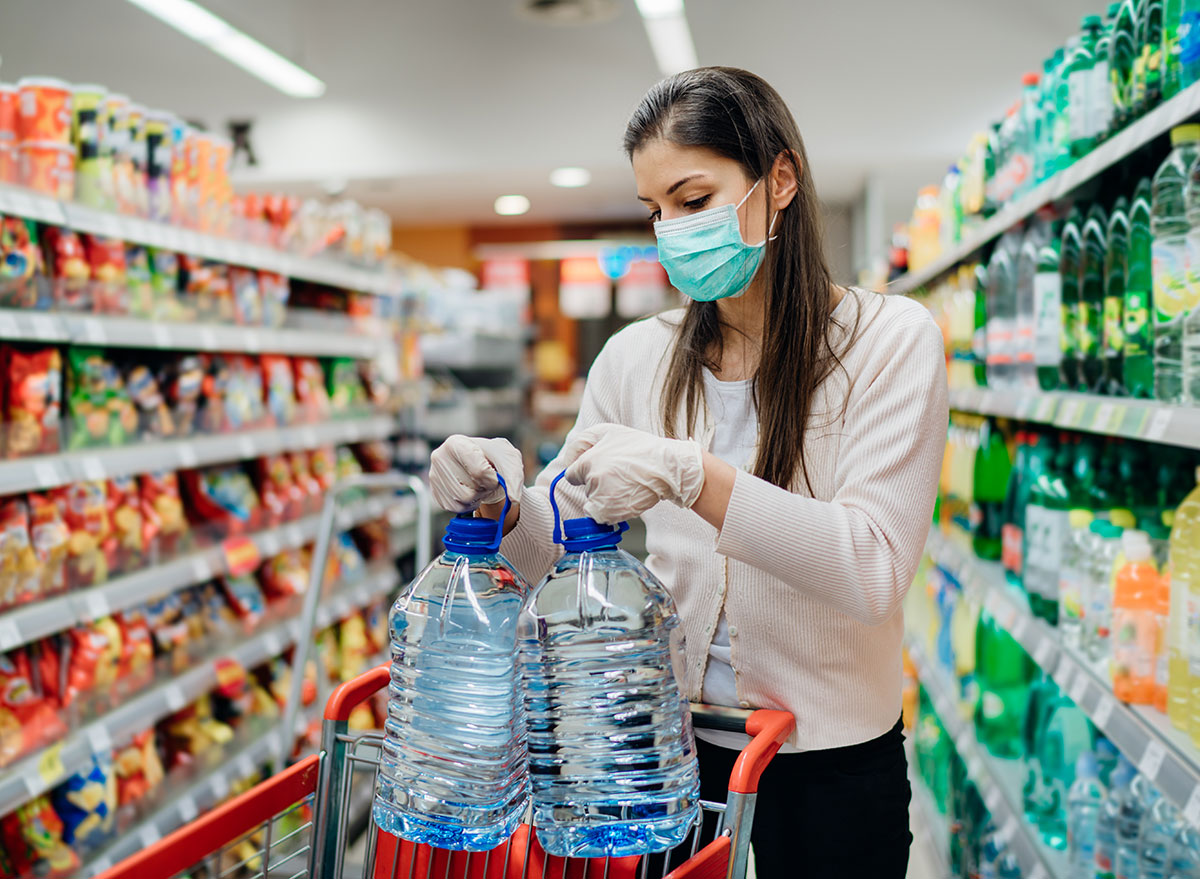
Going grocery shopping is a major concern for many people during this time, though there are several precautions you can take to reduce your risk of contracting COVID-19.
However, it all begins with how you prepare, and no we're not just talking about making a grocery list. Equipping yourself with all of the necessary materials, and understanding why they're important, is key to minimizing your chances of coming in direct contact with the virus.
So, the next time you go to the grocery store, consider taking these precautions before you leave the house.
READ MORE: Click here for all of our latest coronavirus coverage.
Grab your mask
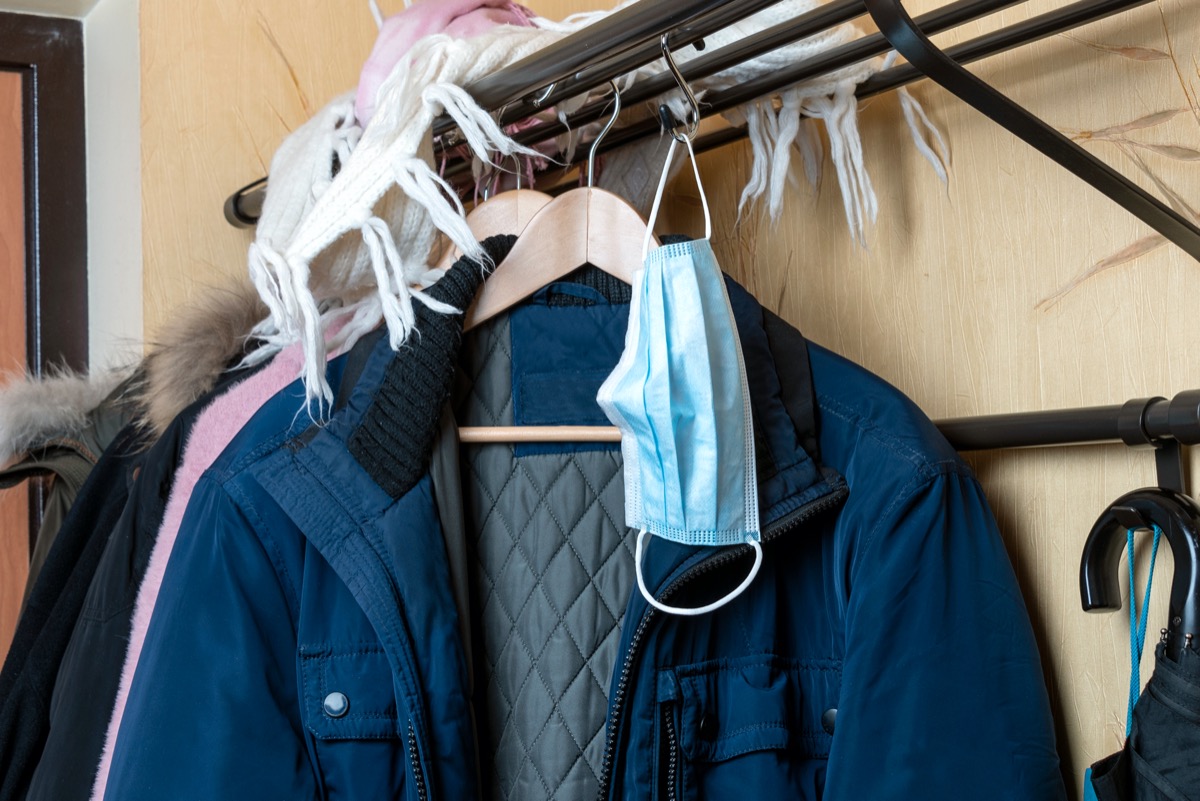
The former theory of the coronavirus not being transmissible through the air is currently being challenged. Chinese scientists found the coronavirus RNA, which the New York Times cleverly describes as the "genetic blueprint of the virus," suspended in the aerosols inside of two hospitals in Wuhan, China. Whether the RNA in the air droplets is infectious or not isn't clear yet. More research is needed to determine that.
What we do know, though, is that those small respiratory droplets people exhale out of their mouths remain in the air for at least two hours. The Times interviewed Linsey Marr, a professor of civil and environmental engineering at Virginia Tech who said this finding, "strongly suggests that there is potential for airborne transmission."
To minimize any chances of exposure when perusing through the grocery store, make sure to wear your mask.
Bring gloves to wear, but only if you do so correctly
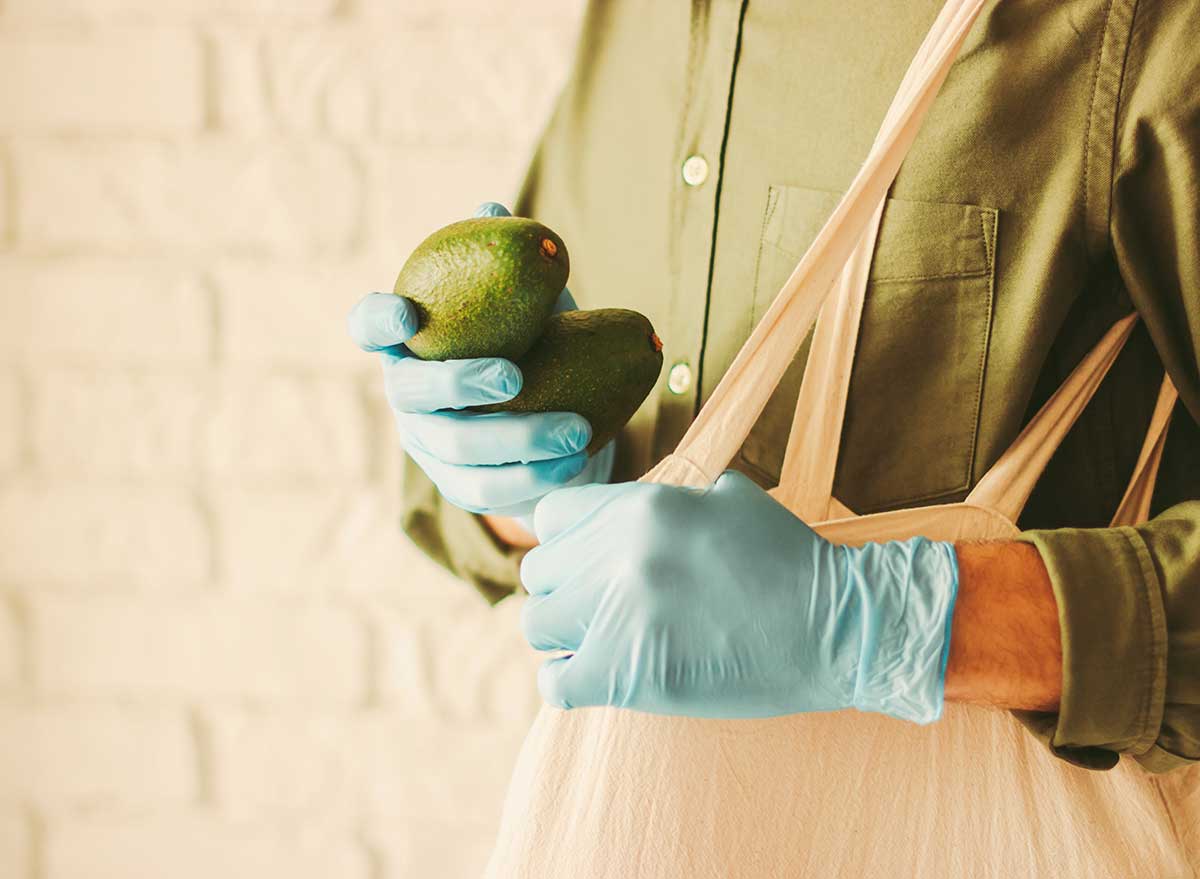
You may have heard a few reasons why you shouldn't wear latex gloves to the grocery store, but to say they are ineffective at potentially offsetting the contraction of COVID-19 isn't correct. The only reason latex gloves wouldn't provide protection is if you're touching your face or other personal objects with them still on.
In an article published by the Cleveland Clinic, infectious disease specialist Patricia Dandache, MD said, "We're seeing a lot of people out in public wearing gloves, which isn't wrong so to say. But unfortunately, most people aren't wearing or disposing of their gloves correctly, which defeats the whole purpose."
Believe it or not, there are several ways you could be wearing protective gloves incorrectly such as reusing them on multiple trips to the grocery store or even trying to clean them after each use. The biggest risk you run of self-contamination, however, is touching your face or your phone after handling groceries or holding onto the shopping cart handle. Latex gloves should be disposed of immediately after use and you should sanitize directly after removing them to reduce your risk of exposure.
Clean and sanitize kitchen surfaces
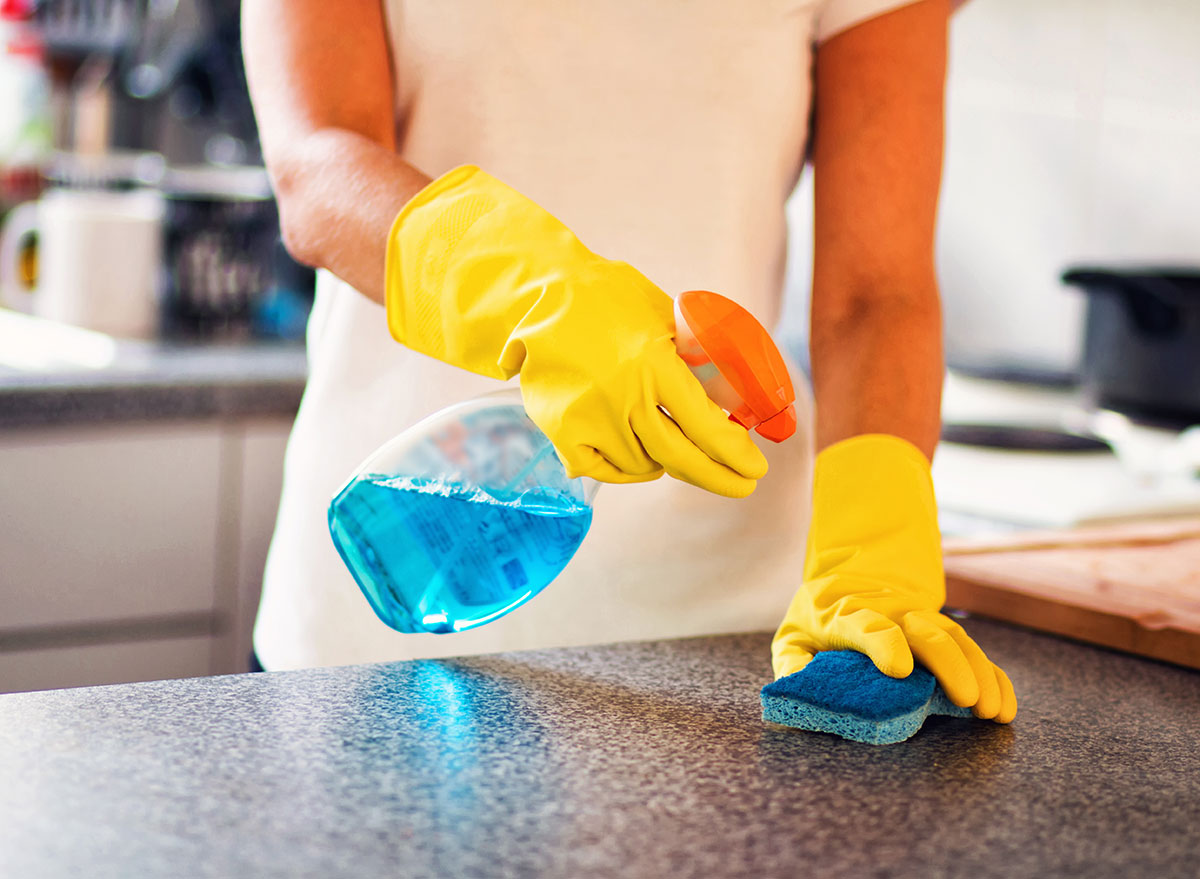
This step is important to follow before and after you bring groceries home. If you're going to put fresh produce that isn't in a bag—and that you plan on eating, skin and all—such as apples, peaches, pears, and cucumbers, it's important that you clean and sanitize the kitchen counter before placing them on top.
In a former Eat This, Not That! article, Shelly Fiest, executive director of the non-profit Partnership for Food Safety Education, detailed the differences between wiping down a counter and disinfecting it.
"Cleaning and sanitizing are not the same thing. They are separate, important steps you can take to reduce the spread of harmful germs," said Feist. "Cleaning removes germs, dirt, and impurities from surfaces by the use of soap or detergent and water. Sanitizing lowers the number of germs on surfaces by the use of a diluted bleach solution that is easy to make at home."
And don't forget to safely wash fruits and vegetables before eating them!
Put some hand sanitizer in your pocket or bag

During the pandemic, having hand sanitizer on hand at all times, including going to the grocery store, is a great idea. If you're going grocery shopping without latex gloves, bringing hand sanitizer should be a top priority. Apply to your hands regularly as you shop, when you're paying out, and before you touch anything outside of the store such as a car door handle or keys.
Bring your mesh produce bags only if they're clean
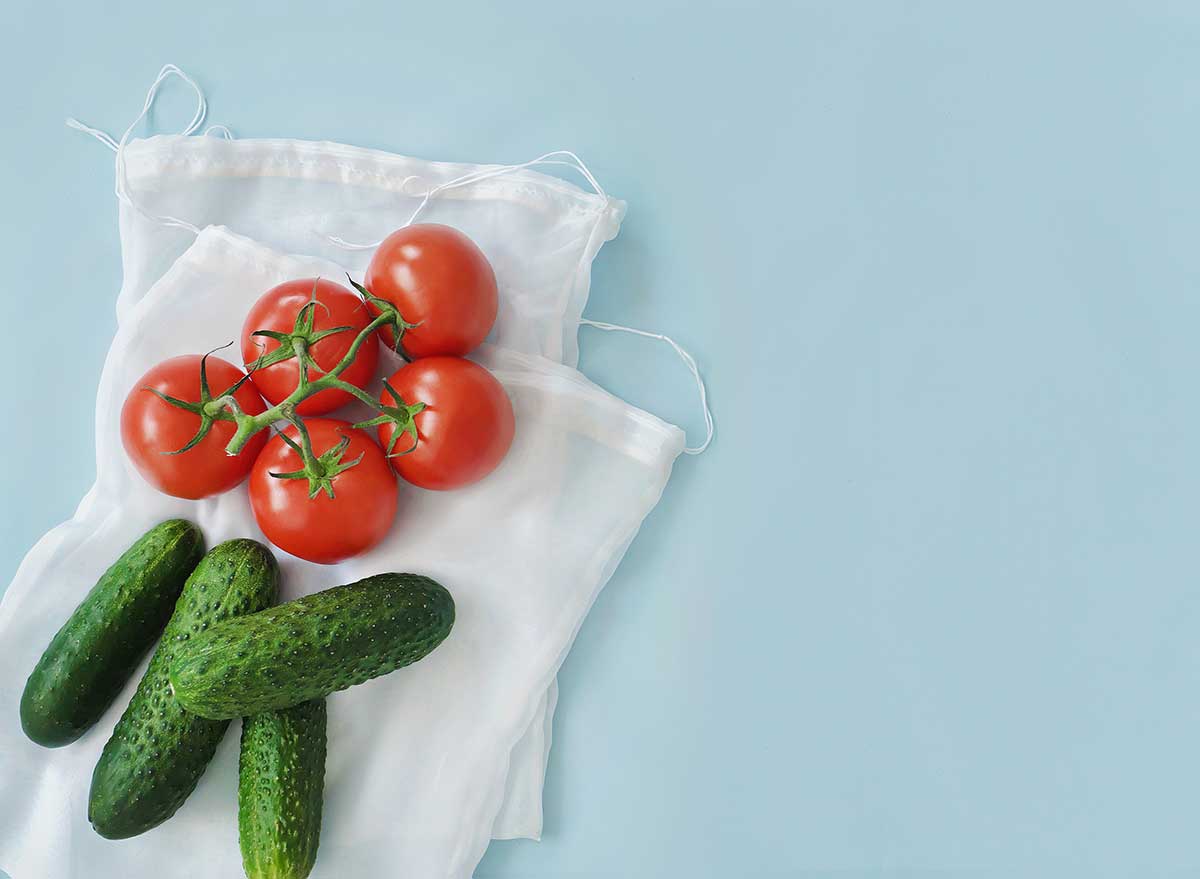
Your local grocery store may have a strict "no reusable bag" policy but if they don't, you may want to consider bringing your own mesh produce bags. Why? While we don't know if the virus can be transmitted through objects just yet, we do know that it can survive on plastic for up to three days, and if you're tossing a head of broccoli into a complimentary plastic produce bag that is then touched by a cashier, you may be at risk of bringing the virus into your home.
Right now there isn't any research on whether the virus can cling to mesh material, and at the very least, you can wash it immediately after use. Consider filling up a bowl with boiling hot water and a touch of detergent. The combination of the heat and soap will likely be enough to destroy any trace of the virus.
Pack a few disinfectant wipes for your phone
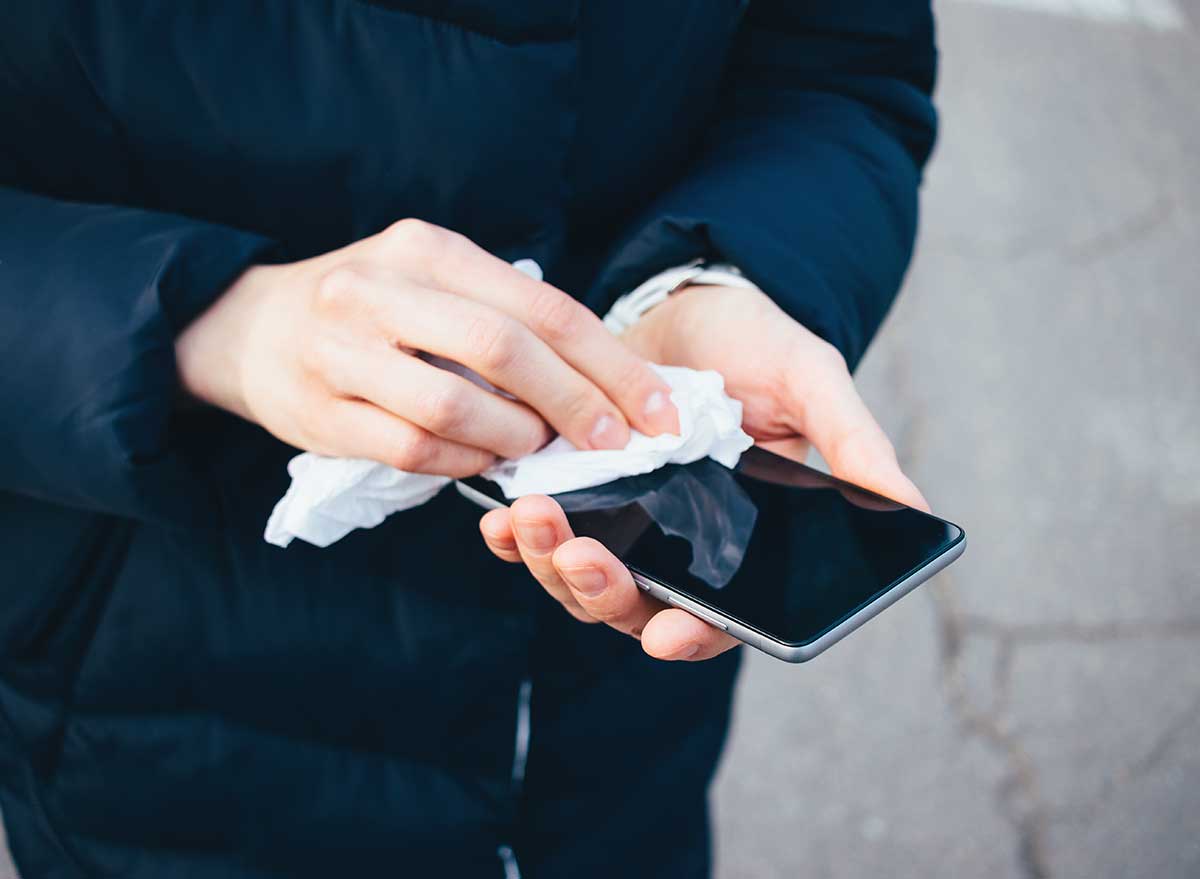
Do you like to pull up the recipe you're shopping for on your phone while at the store? A lot of people do! During the pandemic, though, it's not wise. If you absolutely must do this, consider bringing disinfectant wipes for your phone. Wipe down your cell after each and every time you touch it and only if you're not wearing gloves. For good measure, sanitize your hands before picking up your phone.
Feeling sick? Stay home.
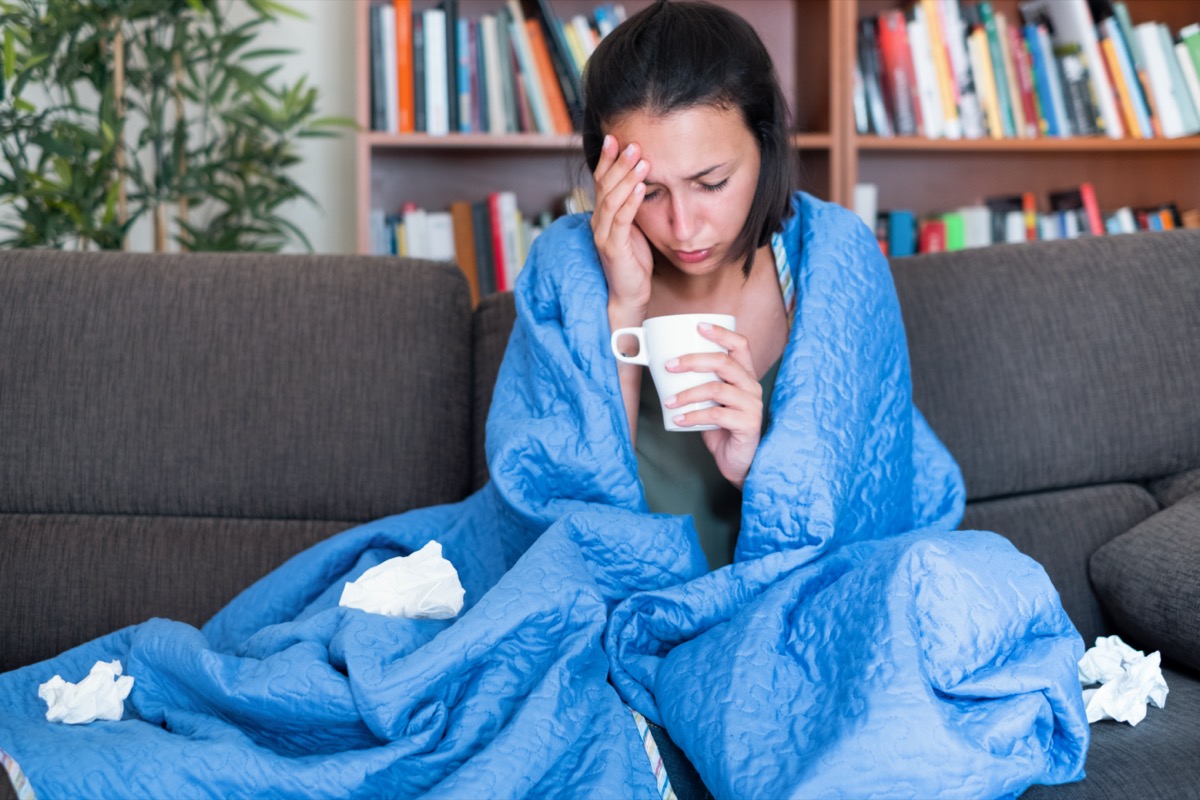
Allergy season is in full swing right now and even during normal times, the symptoms can sometimes be confused with those of common illnesses. However, if you are coughing or sneezing, avoid going to the grocery store altogether, at the very least, to avoid causing panic among other shoppers and workers. Consider having your groceries delivered and left outside of your doorstep until your symptoms pass.


